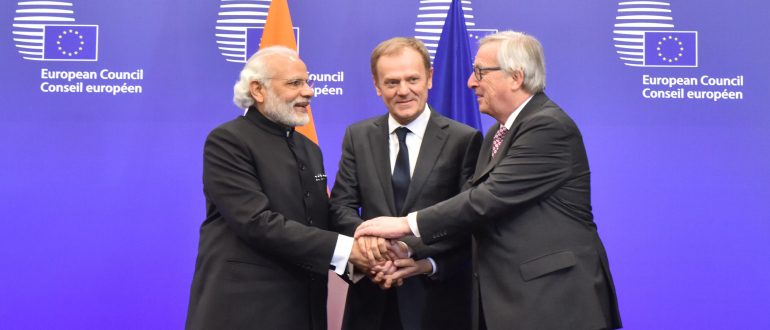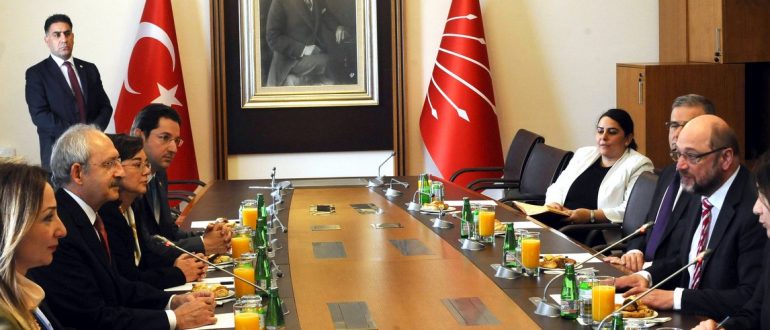Out to get us? The problem with China’s ‘scramble for Europe’
There was a bit of a brouhaha in London over Chinese Prime Minister Li Keqiang’s visit to the UK this past month. The kerfuffle was not to do with the pro-Tibet protests outside Downing Street, but with a surprising flurry of public interest in China’s diplomatic etiquette.
There was a bit of a brouhaha in London over Chinese Prime Minister Li Keqiang’s visit to the UK this past month. The kerfuffle was not to do with the pro-Tibet protests outside Downing Street, but with a surprising flurry of public interest in China’s diplomatic etiquette. Biting media reports condemning the way Chinese officials had reportedly browbeaten their way into meeting the Queen outside state protocol – and even lodged a formal complaint about a red carpet 3 metres too short – were met with predictable indignation in the Communist Party’s mouthpiece Global Times. In somewhat taunting terms, they invited readers to ‘understand the embarrassment of an old declining empire [that just] could not be pettier’. This media tit-for-tat is exemplary of a worrying level of uneasiness in Sino-European relations that risks clouding our judgment of China’s Europe strategy.
Europe’s distrust runs as deep as China’s apparent defensiveness. There are suspicions in some quarters that China’s diplomatic assertiveness betrays a game of divide-and-rule towards Europe. This attitude was best captured by the European Council on Foreign Relations (ECFR) in its 2011 policy brief on China’s post-crisis ‘scramble’ for European government debt, companies, and public-procurement markets. Real or perceived, this scramble is bad news: in their competition for Chinese investment, Europeans risk losing their collective bargaining power to negotiate reciprocal access to Chinese markets.
Sure enough, Mr Li Keqiang’s latest visit to the UK and Greece this month had a ring of China’s much-maligned form of chequebook diplomacy. The prime minister lent credit and lip-service to a free trade zone with the EU, while still securing unilateral deals in key strategic sectors. At the same time, the appointment of China Construction Bank as London’s Renminbi clearing house promises to give Britain pride of place in Chinese currency dealings, especially against rival clearing systems expected to pop up in Frankfurt, Paris and Luxembourg. Gracefully enough, Britain will in turn help ‘relax EU export controls on Chinese-made products’ and relent on its visa restrictions for Chinese tourists.
China’s balancing act between unilateral and European economic diplomacy makes good political and business sense. The success of China’s peaceful rise hinges upon a frank and fruitful relationship with the world’s preeminent political and economic bloc. But tensions between what the ECFR calls ‘frustrated market-openers’ in Europe’s north and ‘cash-strapped deal-seekers’ in Europe’s south are an open invitation for China to tout reciprocal markets to the former and investment deals to the latter. It is no surprise that this should leave the Sino-EU ‘strategic relationship’ open to the sort of contradictions and imbalances that play well into Beijing’s hands.
However, multi-billion business deals shouldn’t blind Europe to China’s political bottom line. At home, state visits such as Mr Li Keqiang’s are still consistently presented as overtures to fellow multipolarity-minded powers. Considering China’s track record of playing the unilateral card with smaller powers along its periphery, the degree to which Europe plays with one voice is crucial to long-term strategies on both sides of the Eurasian continent.
In this sense, the scramble for Europe is an all-European game. The longer domestic exigencies are allowed to drive a wedge in Europe’s economic diplomacy with China, the likelier it is for its dealings with her to feature a fair share of diplomatic browbeating.
Giovanni Mangraviti is Research Associate at CITYPERC (City Political Economy Research Centre) and Doctoral Researcher in International Political Economy at the Department of International Politics and Cass Business School, City University London.
This article was also published in IFAIR’s monthly column at the “Diplomatic Magazine” (August 2014).
Biting media reports condemning the way Chinese officials had reportedly browbeaten their way into meeting the Queen outside state protocol – and even lodged a formal complaint about a red carpet 3 metres too short – were met with predictable indignation in the Communist Party’s mouthpiece Global Times. In somewhat taunting terms, they invited readers to ‘understand the embarrassment of an old declining empire [that just] could not be pettier’. This media tit-for-tat is exemplary of a worrying level of uneasiness in Sino-European relations that risks clouding our judgment of China’s Europe strategy.



